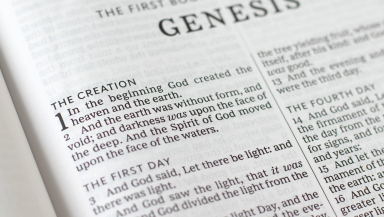
From balconies to buses, T-shirts to storefronts, the word “pride” is everywhere in June. For some Christians, this month stirs up emotions ranging from anger and discomfort to sorrow and confusion.
But rather than responding with condemnation or retreat, this article offers something else: a prayerful redirection toward Jesus Christ, the only One who can bring clarity, healing and truth.
Truth with Love
Christians are called to speak truth but always in love, with the aim to build up, not tear down (Ephesians 4:15). Scripture is clear on sexuality: any expression outside God’s design for one male and one female in covenant marriage is sin (Romans 1:26–27; 1 Corinthians 6:9–11). These are not arbitrary rules, they are part of God’s loving design for human flourishing.
Pride: Dignity or Deity?
Scripture never condemns human dignity. In fact, it proclaims it: we are all made in the image of God (Genesis 1:27), fearfully and wonderfully formed (Psalm 139:14).
But dignity becomes distorted when it turns into deity. This is the pride that Scripture warns against (Genesis 3:5-6; Isaiah 4:12-15; 1 John 2:16; Proverbs 16:18), the root of all sin: when we crown ourselves as the final authority on who we are, what truth is, and what love should look like.
So, phrases like 'Born this way' or 'Love is love' can morph into creeds that elevate self above God, who is love and truth (1 John 4:8; John 14:6), leaving no room for His lordship, and no need for a Saviour.
From Shame to Healing
Many LGBTQ+ people are hostile towards Christianity because they associate it only with condemnation. Others still believe in Jesus but wrestle deeply with how to reconcile their faith and sexuality. Some feel abandoned. Others feel invisible.
Yet the Gospel does not flatten our identities. It orders them. It reminds us we are valuable, yes, but also fallen (Romans 3:23); broken by pride and sin. And yet, by the mercy of Christ, we are redeemable (Romans 3:24; Ephesians 2:4-5; Titus 3:5).
God’s purpose is never to shame, but to heal and restore (John 3:17; Psalm 147:3). His conviction is not cruelty; it’s kindness that leads to repentance (Romans 2:4). Jesus humbled Himself so that we might be lifted up (Philippians 2:6-8; 2 Corinthians 8:9).
He touched lepers, welcomed outsiders, and spoke to those society had silenced (Matthew 8:2-3; Luke 19:5-7; John 8:10-11). He calls the unseen by name (John 10:3).
That same Jesus still sees, still loves, and still invites every person into His grace and truth (Revelation 3:20).
The Path Forward
The cross is not a weapon of judgement; it is a bridge of grace.
To those reading this - whether you identify as LGBTQ+, are walking alongside someone who does, or are simply wrestling with how to respond to Pride Month - here’s the invitation: hold both mercy and truth.
Celebrate the dignity of every person as an image-bearer of God. Surrender the impulse to define ourselves apart from Him, following the example of Jesus (John 5:30). Transform slogans into soul-searching prayer: From “love is love” to “Lord, teach me to love the way You love"; from “born this way” to “God, how have You formed me and what are You forming me into?”
Pride without God leads to ruin. But identity rooted in God leads to redemption, rebirth and resurrection.













